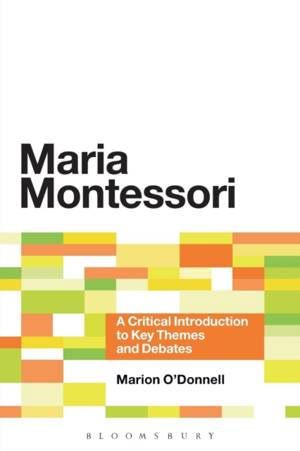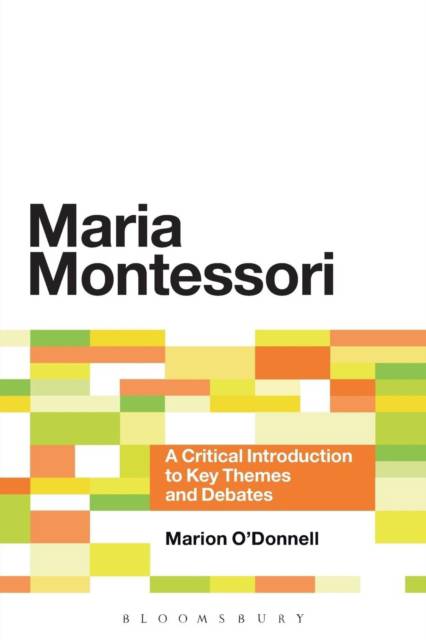
Bedankt voor het vertrouwen het afgelopen jaar! Om jou te bedanken bieden we GRATIS verzending (in België) aan op alles gedurende de hele maand januari.
- Afhalen na 1 uur in een winkel met voorraad
- In januari gratis thuislevering in België
- Ruim aanbod met 7 miljoen producten
Bedankt voor het vertrouwen het afgelopen jaar! Om jou te bedanken bieden we GRATIS verzending (in België) aan op alles gedurende de hele maand januari.
- Afhalen na 1 uur in een winkel met voorraad
- In januari gratis thuislevering in België
- Ruim aanbod met 7 miljoen producten
Maria Montessori
A Critical Introduction to Key Themes and Debates
Marion O'Donnell
Paperback | Engels
€ 76,45
+ 152 punten
Uitvoering
Omschrijving
Maria Montessori considers the origins of Montessori education, examines the key themes of this philosophy of education and explores the relevance of Montessori practices today. Montessori students aged 3-18 study in a stress-free environment with no timetables, no examinations and no homework and yet they are empowered, independent and self-disciplined learners. The curriculum follows the interests of individual children and Montessori educators focus on the development of the whole child, promoting happiness and wellbeing.
Marion O'Donnell explores the key aspects of Montessori education: child development; the learning environment; the role of the teacher; the role of the learner and parental involvement. Within each key aspect, Marion considers the implications for Montessori education, the views of critics and supporters, the implications for education today and the implications for research. Each aspect is considered within an international context, drawing on research and practice in Europe, the USA, South America, Australia and Asia.
Marion O'Donnell explores the key aspects of Montessori education: child development; the learning environment; the role of the teacher; the role of the learner and parental involvement. Within each key aspect, Marion considers the implications for Montessori education, the views of critics and supporters, the implications for education today and the implications for research. Each aspect is considered within an international context, drawing on research and practice in Europe, the USA, South America, Australia and Asia.
Specificaties
Betrokkenen
- Auteur(s):
- Uitgeverij:
Inhoud
- Aantal bladzijden:
- 208
- Taal:
- Engels
Eigenschappen
- Productcode (EAN):
- 9781441172655
- Verschijningsdatum:
- 27/12/2012
- Uitvoering:
- Paperback
- Formaat:
- Trade paperback (VS)
- Afmetingen:
- 150 mm x 231 mm
- Gewicht:
- 317 g

Alleen bij Standaard Boekhandel
+ 152 punten op je klantenkaart van Standaard Boekhandel
Beoordelingen
We publiceren alleen reviews die voldoen aan de voorwaarden voor reviews. Bekijk onze voorwaarden voor reviews.









